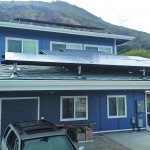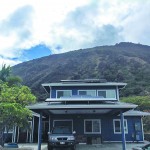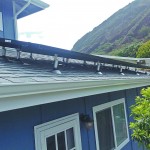As a homeowner, you are confronted with the task of maintaining your home in a climate with conditions that deteriorate its components. Solar equipment is confronted no differently. There has been a flood of modules on the market claiming to be “the best,” offering long-term warranties to back its claims. Unfortunately, warranties are written to protect the manufacturer, and time has a way of proving that low quality does not last. Solar hot water panels are a prime example of this. Some panels have lasted as long as 30 years, while others are replaced as soon as 10 years.
Solar manufacturing companies are reluctant to have its products independently tested, because when other entities have done so, the test results have shown the company’s products to be less than what is advertised. Instead, such companies rely on its warranties to be sufficient proof of product quality.
Recent independent testing by GTM Research of most tier-one solar modules found that every manufacturer — except Kyocera — fell short in at least one of the six tests performed. Pacific Islands Solar installs Kyocera solar modules, because of the company’s concern for module quality and the long term significance it has on its customers.
The following information is provided based on Pacific Islands Solar’s research on solar module quality:
Snail trails are a phenomenon that describes the appearance of dark trails on a module’s surface, which also causes hot spots. More than 25 manufacturers have been found — so far — to have this problem. The cause of the problem has not been fully explained, but likely factors include, micro cracks in cells, cheap components, weak frames and poor construction.
Various testing indicates that many modules seem to have been built only to meet minimum standards, rather than exceed them and promote long-term reliability.
The tests also are revealing module construction that predicts breakdown in fewer years than promised. Serious problems predicted have to do with adhesives used in the sandwich construction of glass, cells and backer, which have resulted in the slippage of these components. Poor junction box construction is another area of concern. The resulting problem is moisture entering the construction or electrical breakdown that has lead to electrical shocks and even fires. These tests are gaining attention, calling for new industry standards that reflect what module manufacturers should be building to protect homeowners from substandard construction.
Salt-mist testing on modules in Hawaii is important. Most manufacturers claim that its modules have been tested, but only five companies have passed level six salt-mist testing. Level six is the most stringent test, allowing a company like Kyocera to install its modules in Japan on floating docks over salt water.
How a system is installed on the roof is another component of quality. Will the securement handle high winds? How waterproofed are the penetrations? Understanding the differences in quality of these components will go a long way in protecting one’s home in the future.
In conclusion, the quality of the equipment you purchase does matter, and is not just about price. Don’t be fooled by warranty claims. See the big picture, as a poor decision today may require you to spend money in the future on underperforming equipment.
If you are considering a PV system for your home, give Pacific Islands Solar a call at 841-7756. The company is more than just a solar contractor; also a roofing contractor, Pacific Islands Solar understands how to properly seal the roof penetration made in your roof. The company also provides five years of free cleaning and maintenance, protecting your investment. Pacific Islands Solar is a company that tries to protect its customers from solar issues by only using the best equipment and installation practices. Check out the company’s website at pacificislandsconstruction.net, or forward any questions to deswartpic@gmail.com.
PACIFIC ISLANDS SOLAR
contact // 841-7756
web // www.pacificislandconstruction.net
See more articles from: Pacific Islands Solar


